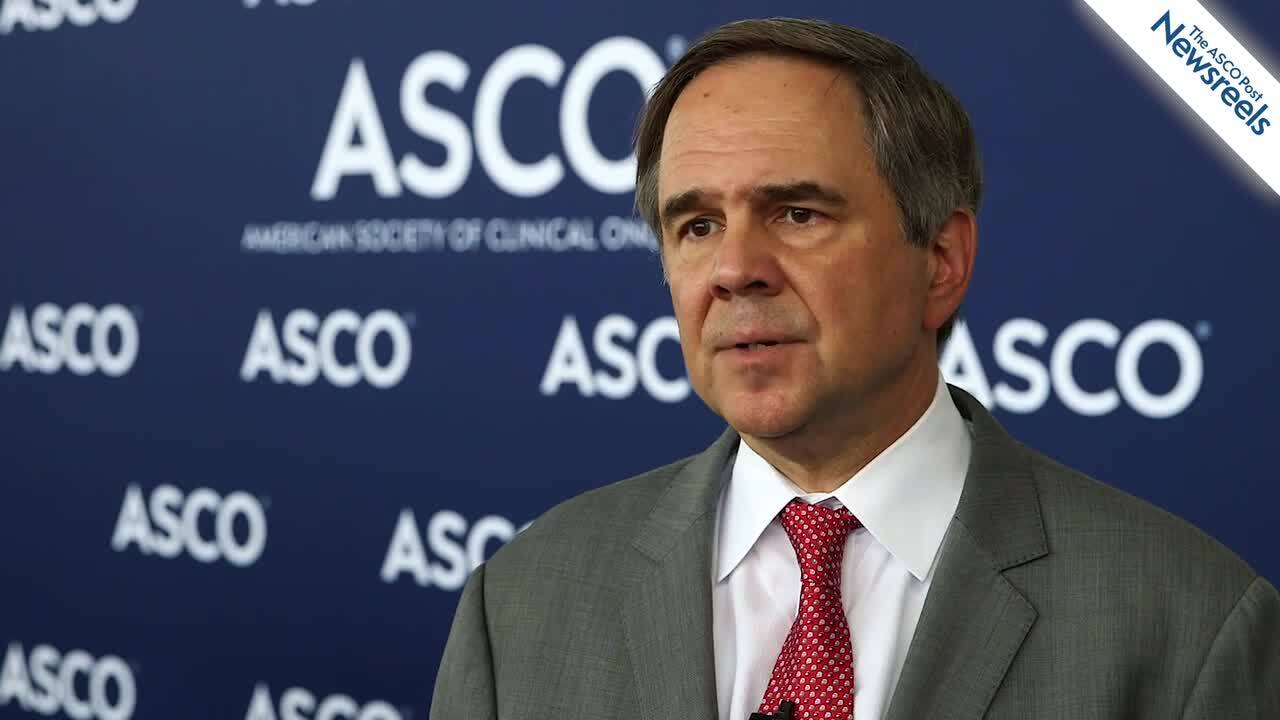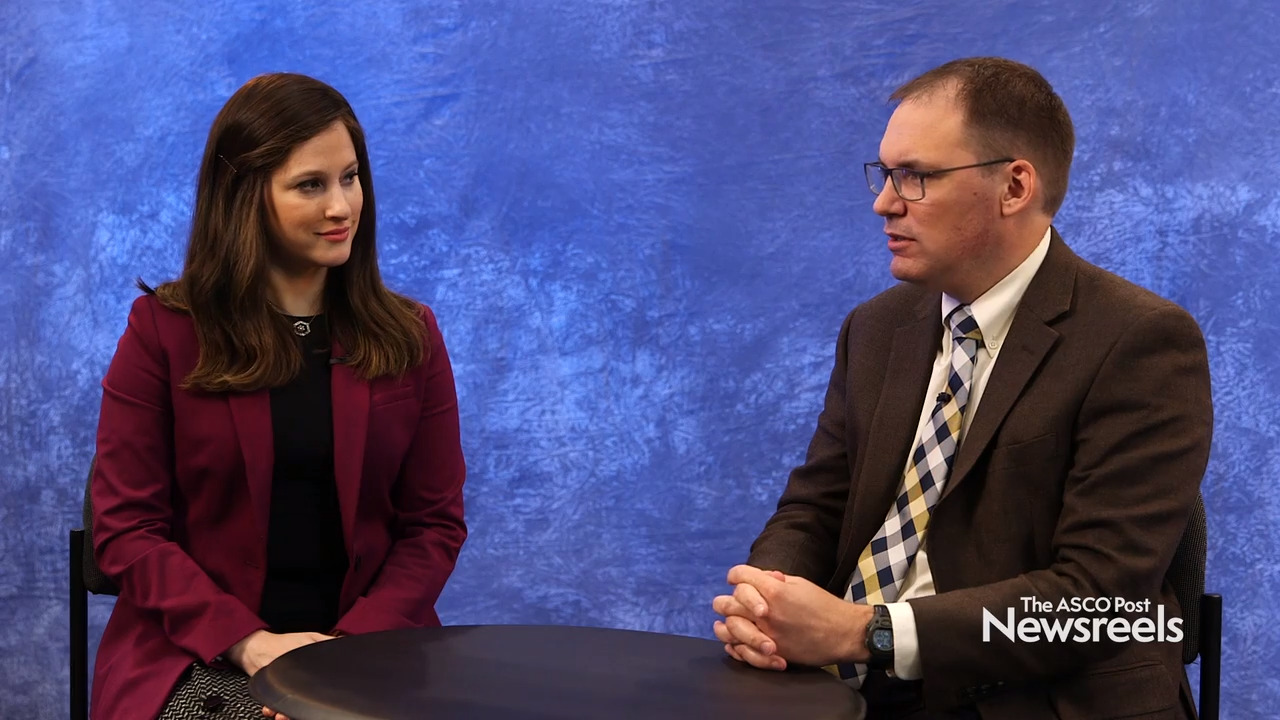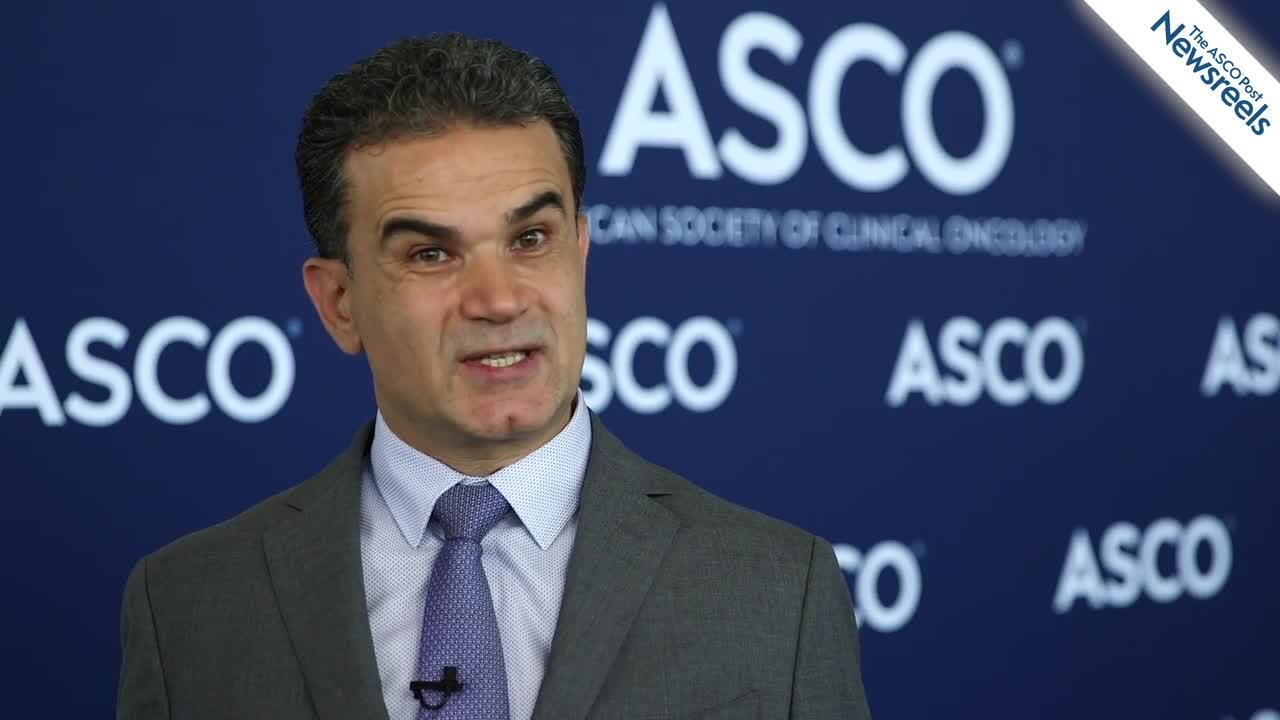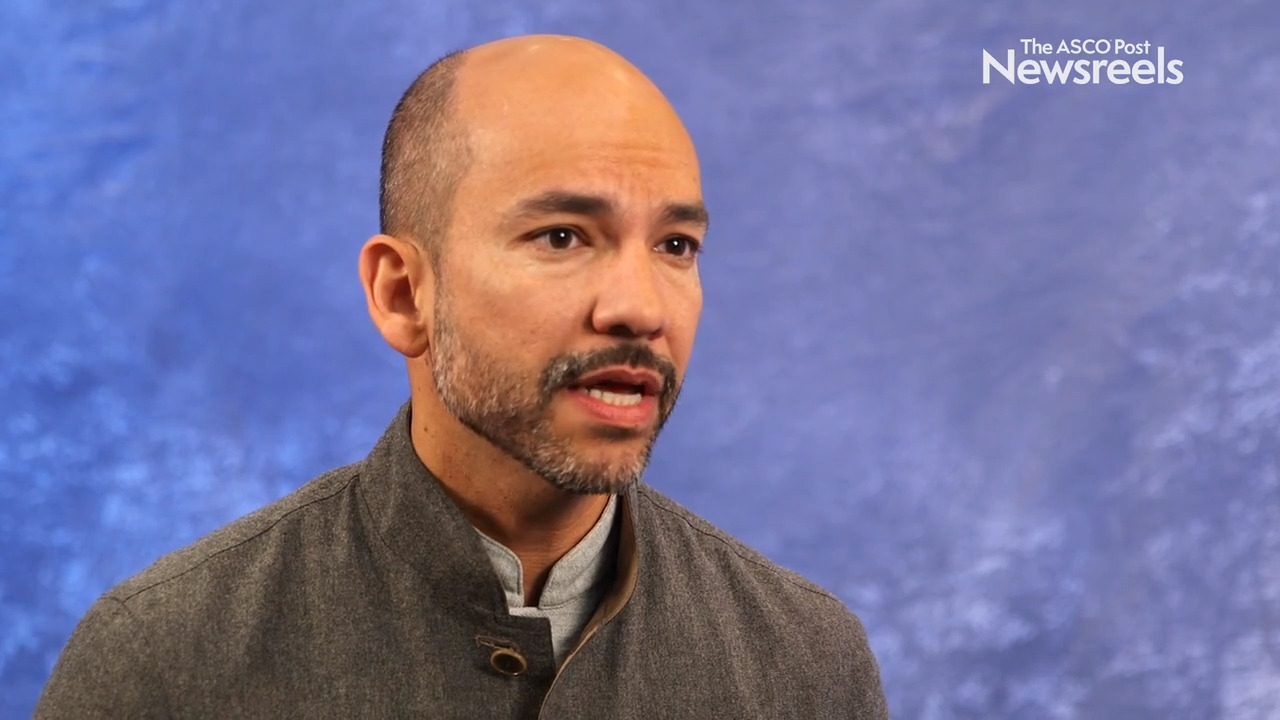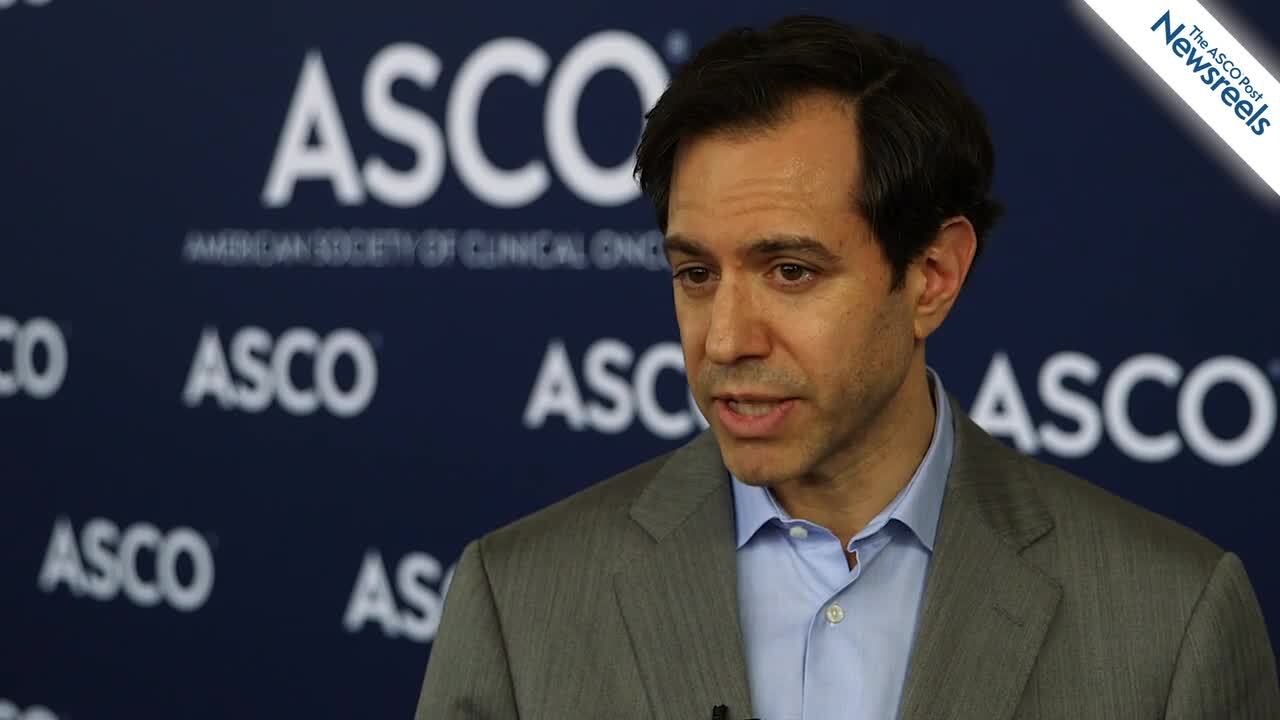Neeraj Agarwal, MD, and Thomas Powles, MD, PhD, on Renal Cell Carcinoma: KEYNOTE-426 on First-Line Pembrolizumab Plus Axitinib vs Sunitinib
2019 ASCO Annual Meeting
Neeraj Agarwal, MD, of Huntsman Cancer Institute, University of Utah Health Care, and Thomas Powles, MD, PhD, of Queen Mary University of London, discuss phase III study findings on outcomes with combination therapy for intermediate/poor-risk and sarcomatoid subgroups of renal cell carcinoma (Abstract 4500).
Daniel P. Petrylak, MD, of Yale School of Medicine, discusses study results on enfortumab vedotin monotherapy for locally advanced or metastatic urothelial cancer previously treated with platinum and immune checkpoint inhibitors (Abstract LBA4505).
Miriam Knoll, MD, and Zachery Reichert, MD, PhD, discuss the FORCE trial, which is examining whether radiation can create a more durable response to systemic therapy, and whether using newer, more sensitive imaging technologies can improve outcomes (Abstract TPS5096).
Ahmad A. Tarhini, MD, PhD, of Emory University and Winship Cancer Institute, discusses phase III findings from the U.S. Intergroup E1609 trial, which showed survival benefits for patients with resected high-risk melanoma—for the first time in the history of melanoma adjuvant therapy (Abstract 9504).
Gilberto Lopes, MD, MBA, of the Sylvester Comprehensive Cancer Center at the University of Miami, offers commentary on phase III findings from the RELAY study, which showed that erlotinib plus ramucirumab led to superior progression-free survival in previously untreated patients with EGFR mutant–positive NSCLC (Abstract 9000).
Matt D. Galsky, MD, of The Tisch Cancer Institute at Icahn School of Medicine at Mount Sinai, discusses phase II study findings that show switch maintenance with pembrolizumab significantly improves progression-free survival in the metastatic setting (Abstract 4504).
